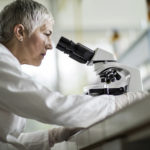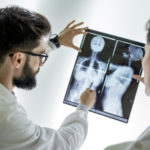Breast Cancer: How Much Radiation?
I’ve heard that three weeks of radiation after breast cancer surgery is enough, but women I know are having six weeks. Which is right?
Andrew Weil, M.D. | March 26, 2018

That depends. Research published in 2010 showed that three weeks of daily radiation therapy after a lumpectomy is as effective as six weeks for women whose cancer hasn’t spread to underarm lymph nodes. But that knowledge hasn’t changed the fact that many doctors still recommend six weeks of radiation therapy for women with early breast cancer that hasn’t spread. An analysis of the treatment of 4,225 women over age 50 with early breast cancer for Kaiser Health News carried out in early 2017 found that only 48 percent of eligible women underwent the recommended three-week course of radiation therapy despite medical guidelines and a statement issued in 2013 by the American Society for Radiation Oncology recommending the shorter course. These guidelines apply to women who have not had chemotherapy.
Possible reasons for sticking to six weeks of radiation are that doctors haven’t kept up with the latest research or are more comfortable doing things the way they’ve always done them. There may be a financial incentive, too, since some oncologists are reimbursed for each treatment performed.
Radiation therapy can be a considerable challenge for women, especially if they live far from a medical facility that provides it. Some patients opt for mastectomy, which does not require follow-up radiation, rather than lumpectomy, which does.
Short-term side effects of radiation therapy include swelling of the breast, redness, peeling or darkening of the skin, and fatigue. These may be milder and less common with thre weeks of treatment rather than six. Most side effects dissipate within six to 12 months.
Another aspect of treatment for early breast cancer that has been called into question is the use of annual tumor marker blood tests, as well as CT, PET and bone scans to detect recurrence of disease. In 2012 the American Society of Clinical Oncology, which represents many cancer specialists, recommended against these tests for patients treated for early breast cancer due to lack of evidence of benefit. Despite this recommendation, a study presented at the 2017 annual meeting of the American Society of Clinical Oncology found that 37 percent of early breast cancer survivors had tumor marker screenings between 2007 and 2015. The tests can be costly, and the scans expose patients to unnecessary radiation. Rarely do they reveal any positive findings, and they often cause distress and anxiety.
Andrew Weil, M.D.
Source:
Timothy J. Whelan et al, “Long-Term Results of Hypofractionated Radiation Therapy for Breast Cancer.” New England Journal of Medicine, February 11, 2010, DOI:10.1056/NEJMo0906260












